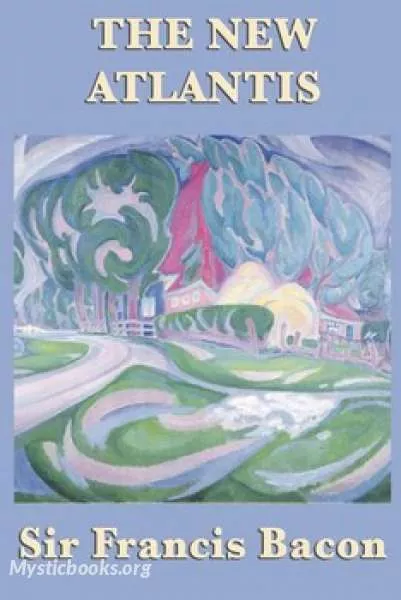
The New Atlantis
'The New Atlantis' Summary
The novel depicts a mythical island, Bensalem, which is discovered by the crew of a European ship after they are lost in the Pacific Ocean somewhere west of Peru. The minimal plot serves the gradual unfolding of the island, its customs, but most importantly, its state-sponsored scientific institution, Salomon's House, "which house or college ... is the very eye of this kingdom."
Many aspects of the society and history of the island are described, such as the Christian religion – which is reported to have been born there as a copy of the Bible and a letter from the Apostle Saint Bartholomew arrived there miraculously, a few years after the Ascension of Jesus; a cultural feast in honour of the family institution, called "the Feast of the Family"; a college of sages, the Salomon's House, "the very eye of the kingdom", to which order "God of heaven and earth had vouchsafed the grace to know the works of Creation, and the secrets of them", as well as "to discern between divine miracles, works of nature, works of art, and impostures and illusions of all sorts"; and a series of instruments, process and methods of scientific research that were employed in the island by the Salomon's House.
The interlocutors include the governor of the House of Strangers, Joabin the Jew, and the Head of Salomon's House.
The inhabitants of Bensalem are described as having a high moral character and honesty, as no official accepts any payment from individuals. The people are also described as chaste and pious, as said by an inhabitant of the island:
But hear me now, and I will tell you what I know. You shall understand that there is not under the heavens so chaste a nation as this of Bensalem; nor so free from all pollution or foulness. It is the virgin of the world. I remember I have read in one of your European books, of an holy hermit amongst you that desired to see the Spirit of Fornication; and there appeared to him a little foul ugly Aethiop. But if he had desired to see the Spirit of Chastity of Bensalem, it would have appeared to him in the likeness of a fair beautiful Cherubim. For there is nothing amongst mortal men more fair and admirable, than the chaste minds of this people. Know therefore, that with them there are no stews, no dissolute houses, no courtesans, nor anything of that kind.
In the last third of the book, the Head of the Salomon's House takes one of the European visitors to show him all the scientific background of Salomon's House, where experiments are conducted in Baconian method to understand and conquer nature, and to apply the collected knowledge to the betterment of society. Namely: 1) the end of their foundation; 2) the preparations they have for their works; 3) the several employments and functions whereto their fellows are assigned; 4) and the ordinances and rites which they observe.
He portrayed a vision of the future of human discovery and knowledge. The plan and organisation of his ideal college, "Salomon's House", envisioned the modern research university in both applied and pure science.
The end of their foundation is thus described: "The end of our foundation is the knowledge of causes, and secret motions of things; and the enlarging of the bounds of human empire, to the effecting of all things possible".
In describing the several employments and functions to which the members of the Salomon's House are assigned, the Head of the college said:
“For the several employments and offices of our fellows, we have twelve that sail into foreign countries under the names of other nations (for our own we conceal), who bring us the books and abstracts, and patterns of experiments of all other parts. These we call merchants of light.
“We have three that collect the experiments which are in all books. These we call depredators.
“We have three that collect the experiments of all mechanical arts, and also of liberal sciences, and also of practices which are not brought into arts. These we call mystery–men.
“We have three that try new experiments, such as themselves think good. These we call pioneers or miners.
“We have three that draw the experiments of the former four into titles and tables, to give the better light for the drawing of observations and axioms out of them. These we call compilers.
“We have three that bend themselves, looking into the experiments of their fellows, and cast about how to draw out of them things of use and practice for man's life and knowledge, as well for works as for plain demonstration of causes, means of natural divinations, and the easy and clear discovery of the virtues and parts of bodies. These we call dowry–men or benefactors.
“Then after diverse meetings and consults of our whole number, to consider of the former labours and collections, we have three that take care out of them to direct new experiments, of a higher light, more penetrating into nature than the former. These we call lamps.
“We have three others that do execute the experiments so directed, and report them. These we call inoculators.
“Lastly, we have three that raise the former discoveries by experiments into greater observations, axioms, and aphorisms. These we call interpreters of nature."
Even this short excerpt demonstrates that Bacon understood that science requires analysis and not just the accumulation of observations. Bacon also foresaw that the design of experiments could be improved.
In describing the ordinances and rites observed by the scientists of Salomon's House, its Head said:
We have certain hymns and services, which we say daily, of Lord and thanks to God for His marvellous works; and some forms of prayer, imploring His aid and blessing for the illumination of our labors, and the turning of them into good and holy uses.
And finally, after showing all the scientific background of Salomon's House, he gave the European visitor permission to publish it:
And when he had said this, he stood up; and I, as I had been taught, kneeled down, and he laid his right hand upon my head, and said; "God bless thee, my son; and God bless this relation, which I have made. I give thee leave to publish it for the good of other nations; for we here are in God's bosom, a land unknown."
Book Details
Language
EnglishOriginal Language
EnglishPublished In
1626Authors
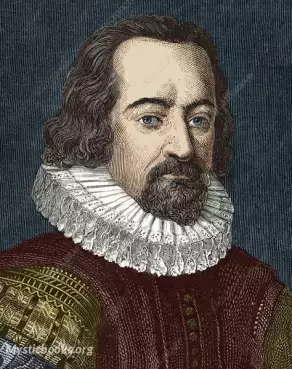
Francis Bacon
England
Francis Bacon, 1st Viscount St Alban, also known as Lord Verulam, was an English philosopher and statesman who served as Attorney General and as Lord Chancellor of England. His works are seen as devel...
Books by Francis BaconDownload eBooks
Listen/Download Audiobook
- Select Speed
Related books
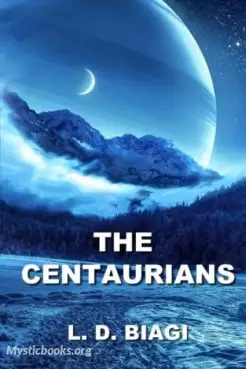
The Centaurians by L. D. Biagi
Published in 1911, 15 years before the first verified discovery of the North Pole and in the same year when F. Cook published a memoir claiming his ow...
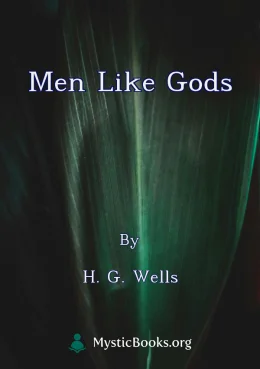
Men Like Gods by H. G. Wells
In H.G. Wells's *Men Like Gods*, a journalist named Mr. Barnstaple finds himself unexpectedly transported 3,000 years into the future. He arrives in a...
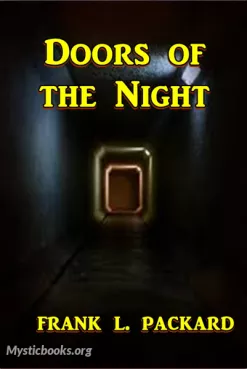
Doors of the Night by Frank L. Packard
In "Doors of the Night" by Frank L. Packard, shadows conceal more than just darkness. When acclaimed archaeologist Dr. Amelia Vance unearths a cryptic...

The Last Secrets by John Buchan
The author, John Buchan, maintains that "the main lines of the earth's architecture have been determined" during the first two decades of the twentiet...
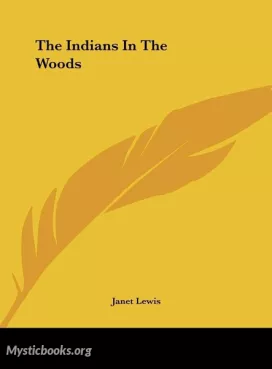
The Indians in the Woods by Janet Lewis
In the heart of the untamed wilderness, a haunting secret awaits discovery, unraveling the intricate tapestry of human emotions and the clash of cultu...
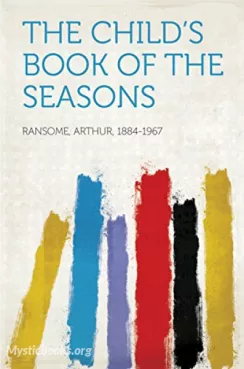
A Child's Book Of The Seasons by Arthur Ransome
A Child's Book Of The Seasons is a charming and evocative book that captures the beauty of the natural world through the eyes of a child. Arthur Ranso...
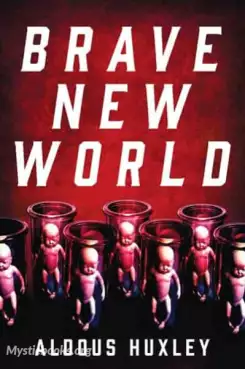
Brave New World by Aldous Huxley
Brave New World is a dystopian futuristic World State. Intelligence based class that are genetically modified citizens. The novel anticipates huge sci...
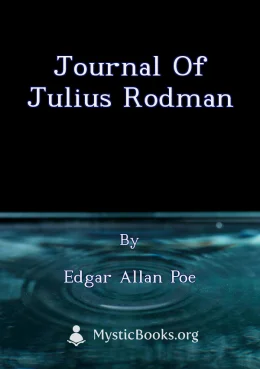
Journal of Julius Rodman by Edgar Allan Poe
The Journal of Julius Rodman is a serialized novel written by Edgar Allan Poe in 1840. The novel was published in "Burton's Gentleman's Magazine" in s...
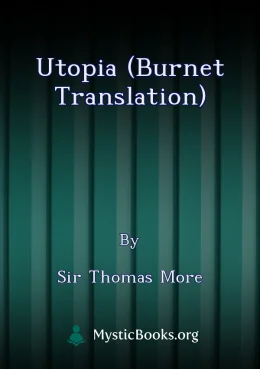
Utopia (Burnet translation) by Sir Thomas More
This book is all about the fictional country called Utopia. It is a country with an ‘ideal’ form of communism, in which everything really does belong...
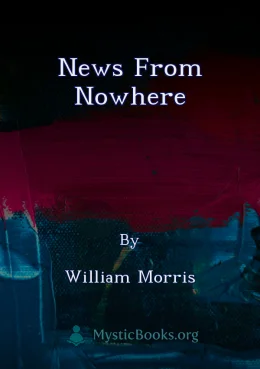
News From Nowhere by William Morris
News from Nowhere is a utopian novel that imagines a future society based on socialism and common ownership. Set in a world without private property,...
Reviews for The New Atlantis
No reviews posted or approved, yet...